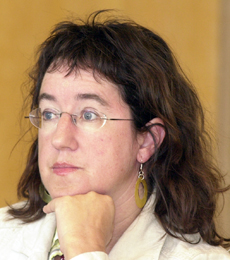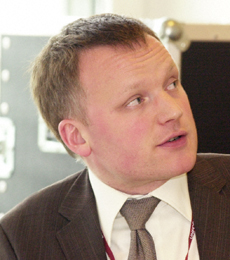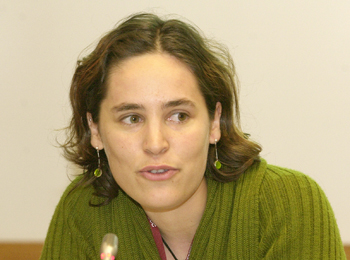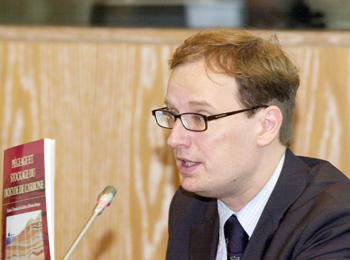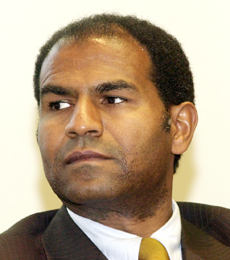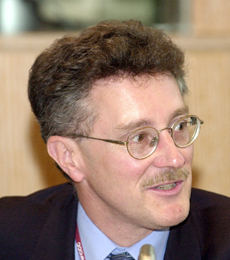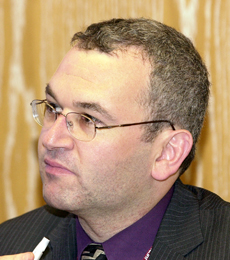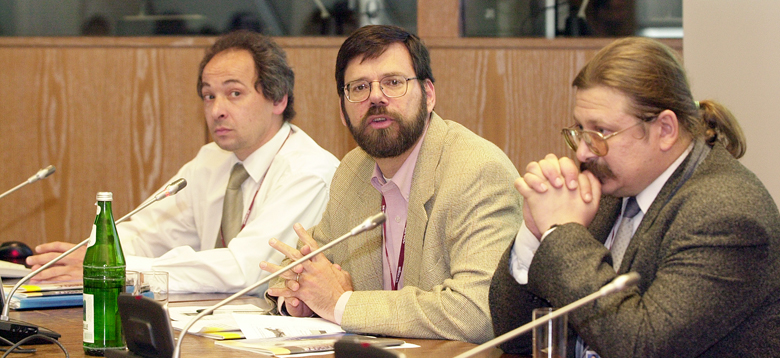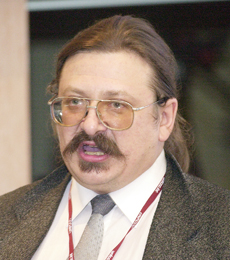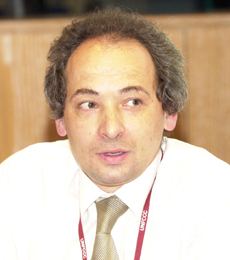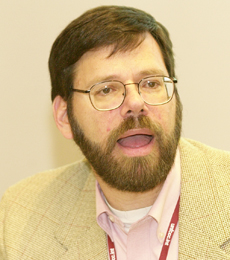 |
||
|
Published by the International Institute for Sustainable Development (IISD)
in cooperation with the UNFCCC Secretariat |
|||
|
Special Report on Selected Side Events at SB 24
|
|||||
| 15-26 May 2006 | Bonn, Germany | |||||
 |
|||
 |
|||
Events convened on Saturday, 20 May 2006
|
Carbon capture and storage as a climate policy measure Presented by the Center for International Climate and Environmental Research |
||||
|
Andreas Tjernshaugen, Center for International Climate and Environmental Research (CICERO), examined political commitments to carbon capture and storage (CCS) and their drivers in Europe and North America through a study of public R&D budgets. Noting that although current CCS budgets are small, he suggested future budgets will increase. He identified the presence of recoverable oil and gas reserves as prime drivers for government interest in CCS and added that meeting Kyoto Protocol’s targets or reliance on fossil fuels are less important factors. Asbjørn Torvanger, CICERO, focused on climate impacts of leakage from geological carbon dioxide storage. He presented scenarios that show the impacts of carbon dioxide use and storage on climate stabilization and emission rates, stressing that these scenarios account for leakage. He highlighted results of computer simulations on leakage scenarios in saline formations or aquifers. He then showed scenarios of the impacts of storage, degrees of leakage and no storage on atmospheric carbon dioxide concentration and on temperature change. He stated that while large scale CCS can have a significant mitigation effect, leakage can be non-marginal and lead to a climate backlash. He said a relatively strict climate target is feasible with high fossil fuel use if high storage is employed. He underscored the existence of monitoring, legal, and institutional challenges to CCS. Kristin Rypdal, CICERO, examined regulatory aspects of safe storage of CCS. Highlighting that CCS regulatory guidelines are under development, she discussed some of the implications of IPCC 2006 guidelines for CCS. She stressed that safe storage depends on sound project management and that the IPCC 2006 guidelines provide a framework for monitoring and reporting requirements. She called for additional regulatory frameworks if CCS is to be part of emission trading schemes. Bert Metz, Netherlands Environmental Assessment Agency, commented on the lack of clarity on CICERO’s estimates of leakage rates and suggested the use of compensation measures in case of leakage. In ensuing discussions, participants identified the existence of a well established geo-scientific community as a major driver for a country focus on CCS. Participants also addressed the difference between figures on fuel resources and reserves and the high leakages rates presented by CICERO. |
||||
|
|||
|
Climate change, energy and sustainable development: how to tame King Coal? Presented by France |
|||
|
Antoine-Tristan Mocilnikar, Energy Counselor to the Interministerial Delegate for Sustainable Development, France, stated that coal consumption will double by 2030, with the greatest increases occurring in developing countries. He stressed that CCS is pivotal to reducing carbon dioxide emissions. Emphasizing that existing CCS technologies are at an experimental stage, he outlined the need to build an economic framework to encourage their profitable deployment.
Tim Dixon, Department of Trade and Industry, UK, introduced the EU-China Partnership on Climate Change, which seeks to accelerate China’s learning curve with regards to CCS development and deployment. He explained that the project resulted from a UK assessment that identified CCS and the need to engage emerging economies as the most efficient mitigation activities. Mustapha Kleiche, French Development Agency, stated that developing countries will use local resources to meet their energy needs, even if this means exploiting coal. He explained that his Agency strives to help developing countries reduce the negative impacts of fossil fuel-based energy while promoting economic growth, emphasizing the combined role of energy efficiency, energy diversification and CCS in achieving a 50% reduction in carbon dioxide emissions by 2050. David Reiner, University of Cambridge, discussed public acceptability of CCS. He highlighted that while there is a rise of CCS on the policy agenda, there is a lack of public awareness and understanding of the concept. He noted that current research reveals public support for renewable energy development and increased energy efficiency. Participants discussed the impacts of CCS on energy prices. |
|||
|
|||
|
Carbon stocks and flows of the Russian forest and landbase Presented by the World Resources Institute |
|||
|
Summarizing the findings of the 2005 World Resources Institute report “Stocks and Flows”, Dmitri Zamolodochikov, Russian Academy of Sciences, highlighted that Russian forests are currently a net sink. He emphasized that the report contributes to making Russian national forest data accessible to the international community. Noting the economic potential of Russian forests for carbon sequestration, he suggested the possibility of enhancing sequestration by 20 million tons carbon equivalent per year at a cost of USD 13 per ton of carbon, which is below current European prices.
Mikhail Gytarsky, Institute of Global Climate and Ecology, Russia, described how the findings from the 2005 report were used to develop Russia’s GHG Inventory in the forest sector, noting that the inventory’s development was also informed by the IPCC LULUCF Good Practice Guidance. He outlined the methods and parameters used to develop the inventory and noted that the overall uncertainty in the inventory estimates is about 30%. Participants discussed: illegal logging in Russia; whether Russian forests are sources or sinks; Russia’s criteria for “managed forest lands”; and the Russian stance on Article 3.4 of the Kyoto Protocol on LULUCF additional activities. |
|||
|
|||
|
||
|
Click the above button to go back to our ENB main coverage
|
||
|
|
|
|
|
||
|
